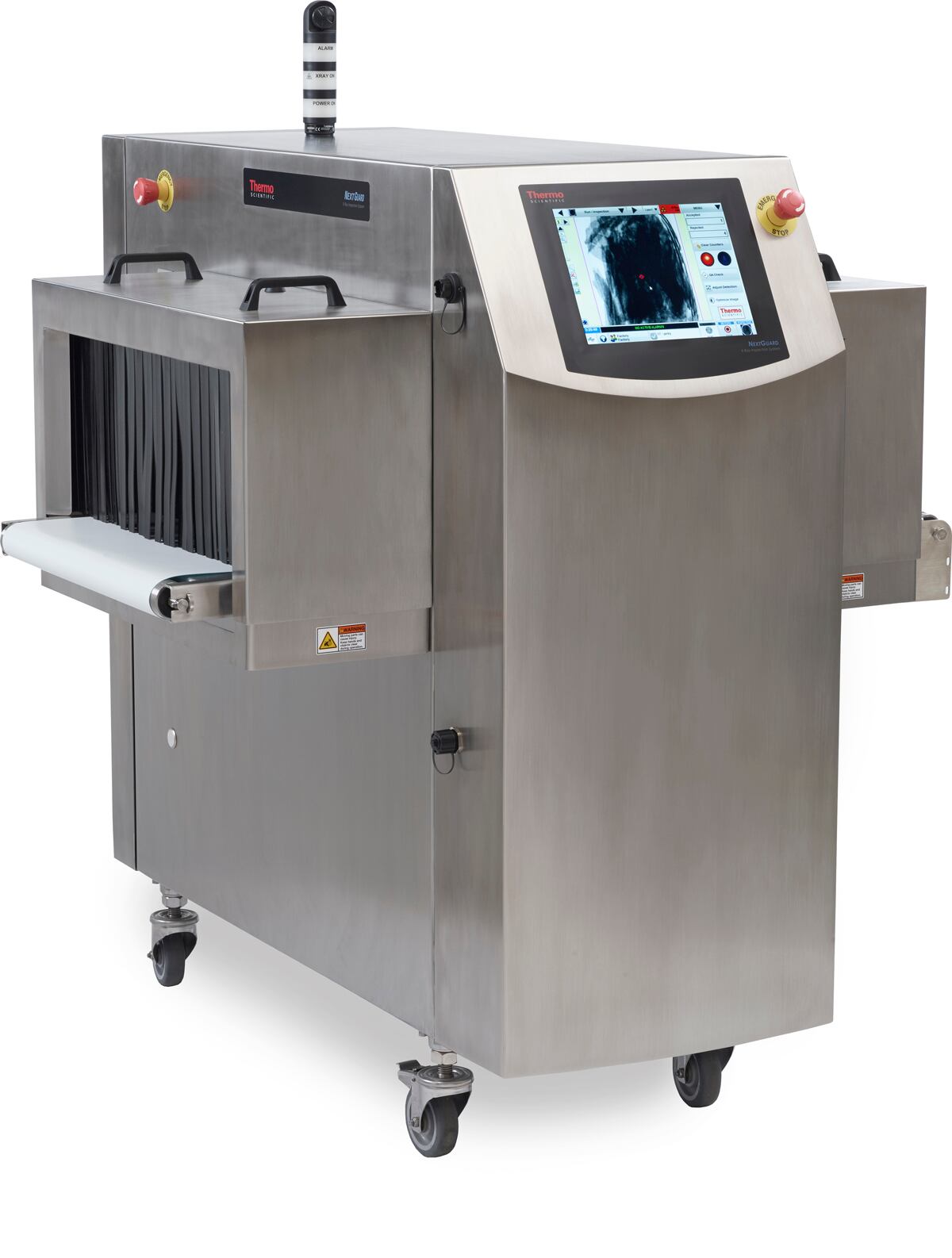The detection system aperture is 35% wider and 50% taller than previous models, making it suitable for larger-sized products and cases.
Typical metal detection is <= 1mm (ferrous, non-ferrous, stainless steel) and glass/rock detection is <= 3mm. Maximum speed is 50m/min which equates roughly to 10-15 medium sized boxes per minute.
Affordable option for bulk sizes

The C500 uses a wide X-ray beam and arc-shaped detector to eliminate blind spots in the inspection tunnel.
Bob Ries, lead product manager, metal detection and X-ray inspection at Thermo Fisher, told FoodQualityNews, the machine footprint is only 20-30% larger, optimizing production floor space.
“Many club stores and wholesale warehouses now mandate the use of detection/inspection for products sold in their outlets,” he said.
“This system gives food processors an affordable option for bulk sizes. The NextGuard C500 is well suited for cases with multiple components, such as cartons or flexible bags, as well as large, individual packages or boxes.
“It can be configured for up to eight lanes of simultaneous inspection, making it more cost-effective than purchasing and maintaining several smaller-aperture, single-lane systems.
"The package size an X-ray system can inspect is determined by the X-ray beam shape/width and detector length. These are fixed for a particular system and thus are not possible to change in the field. They also impact the price of the machine so customers typically buy the smallest, correct-size machine possible."
Ries said there was two things different about the inspection system from all the similar aperture machines on the market today.
"The first is the X-ray beam is very wide meaning a package can completely fill the aperture and still be 100% inspected. Generally speaking large box/case machines have a trapezoidal x-ray beam meaning the taller the box is the narrower the inspection zone it," he said.
"The second is the footprint of the machine. When moving from the NextGuard C330 to the C500 (which has a 35% wider and 50% taller aperture), the machine only gets marginally larger. This makes it much easier to add to an existing production line that must move from metal detection to X-ray inspection."
Ries said the wide beam and arc shaped detector means there are never any blind spots in the inspection tunnel.
"If a product can pass through it is always 100% inspected. The vast majority of X-ray systems in the world do not work this way so the user must be very careful to pass only the correct sized packages through the exact center of the system or the risk not inspecting portions of the package."
Ries said it has a philosophy to include many options for free so the customer has what they need all the time. However, this is not possible with the higher power X-ray source due to cost, which is why it’s optional. Rejection systems also are usually custom engineered so they are optional.
Increased use of metalized film packaging
According to Ries, NextGuard’s features have been driven by a changing industry landscape.
These include evolving HACCP standards, increased use of metalized film packaging (which is problematic for metal detectors) and various wet or semi-frozen foods (cheese, ice cream, bakery products) that do not lend themselves to metal detection due to product effect issues.
“To assure there is enough X-ray power to penetrate thick and dense packaged products, the NextGuard C500 is available with an optional 25%-higher power source. This is desirable for products such as large meat/poultry packages, blocks of cheese or ice cream tubs,” he added.
"There is an unending quest for zero foreign objects in food. This is driven by the food producers, the end customers and government regulators.
"Because, in many cases, X-ray can find more types and smaller contaminants than metal detectors, it is becoming the detection system of choice in many situations.
"As a result, Thermo Fisher has seen significant growth in this segment of business over the last two to three years and anticipate this will continue for the next five to 10 years."
